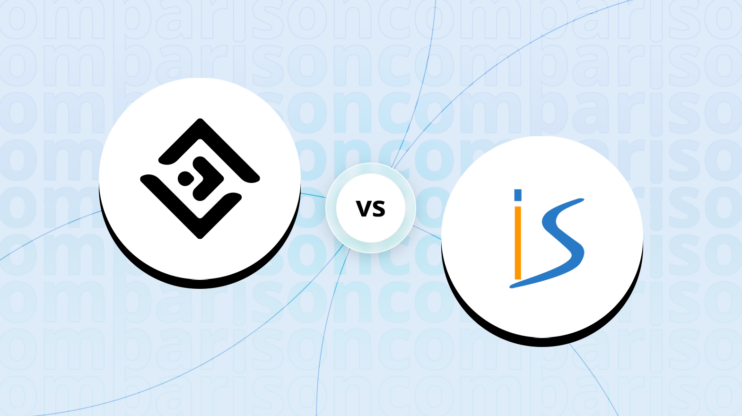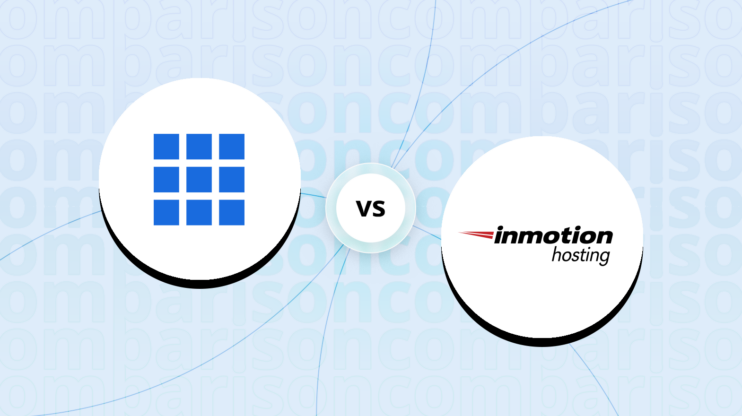Hivelocity vs Pagely: Final verdict
Looking over Hivelocity vs. Pagely, each offers strong performance with distinct advantages tailored to different user needs.
-
Pagely (Overall grade: 8.1)
provides outstanding managed WordPress hosting, ideal for agencies, eCommerce businesses, and high-traffic websites. Its integration with Amazon AWS enhances reliability, response times, and scalability. Advanced security features and redundant data centers ensure robust disaster recovery and uptime guarantees. However, the premium pricing may deter smaller businesses. Specialized support, staging environments, and automation in updates and backups make it a formidable choice for users heavily invested in WordPress.
Hivelocity (Overall grade: 7.7)
offers a diverse range of hosting options, including shared, VPS, and dedicated hosting, catering to varied requirements. Known for its flawless 100% uptime since 2011, it delivers reliable performance through top-tier data centers equipped with extensive redundancy measures. While lacking in built-in email hosting and a website builder, Hivelocity excels in customizable hardware solutions and competitive pricing. Its extensive control panel choices and immediate server deployment make it a versatile option for both novice and advanced users.
 Overall grade:7.7 |
 Overall grade:8.1 |
|
|---|---|---|
| Uptime and Availability | 9.8 | 9.5 |
| Hosting Performance | 7.0 | 8.8 |
| Hosting Security | 8.7 | 9.2 |
| Price | 8.7 | 7.4 |
| Hosting Features | 2.5 | 4.6 |
| Ease Of Setup | 8.5 | 8.2 |
| User Management | 6.9 | 8.4 |
| Customer Support | 9.5 | 8.9 |
| User feedback | 4.9/5 | 4.9/5 |
Hosting types offered
Both platforms provide a variety of hosting types, each designed to meet the different needs of users.
 |
 |
|
|---|---|---|
| Shared hosting | yes | no |
| Cloud hosting | yes | yes |
| WordPress hosting | yes | yes |
| Ecommerce hosting | yes | yes |
| VPS hosting | yes | no |
| Dedicated hosting | yes | no |
Although both offer a variety of hosting plans tailored to different needs, in
certain cases, one platform may prove to be more suitable.
Detailed comparison
Uptime and availability
Evaluates the average uptime statistics, uptime guarantee and overall availability of the hosting
provider
Score Components:
- Uptime percentage (30%): evaluates the uptime statistics in given period of time
- Uptime guarantee (20%): Assesses if the platform offers an uptime guarantee and
whether the actual uptime matches the promised guarantee. - General performance (25%): Evaluates how fast is the average response time and overall
it’s stability. - Responsiveness (10%): Adaptability to different devices and screen sizes.
- Availability (25%): Reflects the total downtime and number of outages.
 9.8
9.8
 9.5
9.5
🏆 Winner Hivelocity: Known for maintaining exceptional uptime and reliability.

Both Hivelocity and Pagely offer stellar uptime guarantees, but Hivelocity takes the lead with its flawless 100% uptime since 2011. The hosting provider’s data centers are equipped with top-notch redundancy measures, including high-end diesel power generators and extensive fuel reserves. This ensures continuous power supply even during extended outages, providing peace of mind for high-end customers.

Pagely’s high availability architecture and 14 global data centers offer robust reliability and disaster recovery options. They maintain an average response time of 211ms and handle 1,965 requests per second, which demonstrates their capability to manage significant traffic. Their multi-region redundancy and 24/7 uptime monitoring bolster their strong performance, making Pagely a dependable option for scalable hosting solutions.
Which one has better hosting performance?
Score Components:
- Hosting speed (30%): This includes SSD quality, Load times, PageSpeed score ranges,
additional information on website speed, built-in plugins for performance enhancement, available caching
methods, and CPU/RAM options - CDN (20%): Considers whether CDN is available or not, whether it’s free or paid, and
the quality of the CDN service - Available data centers (30%): Evaluates the number of data centers and their locations
globally. - Scalibility (20%): Looks at whether elastic scaling is available, the process required
to scale (manual upgrade vs. automatic scaling), the presence of dedicated servers, and the costs
associated with scaling.
 7.0
7.0
 8.8
8.8
🏆 Winner
Pagely: Premium hosting with advanced features and high-end performance capabilities.
When comparing the general performance of Hivelocity and Pagely, there are notable differences. Hivelocity provides high-end hardware, including Intel and AMD processors, alongside extensive global data center locations, hence ensuring lower latency and faster load times. It boasts a 99.99% uptime guarantee and a robust self-healing international network. Conversely, Pagely offers a vast array of performance plans with variable CPU and RAM specifications, managed DevOps support, and advanced network security. Pagely utilizes superior caching and CDN technology, powered by Amazon AWS, which further enhances website speed and reliability.
Website Speed
Both Hivelocity and Pagely prioritize website speed, but their approaches differ. Hivelocity offers high-end hardware and employs a self-healing international network to reduce latency, ensuring quick load times. Their CRAC cooling and instant deployment features support rapid server performance. Pagely’s focus on advanced caching and CDN through Amazon AWS allows it to deliver consistently fast website speed, regardless of traffic volume. Additionally, Pagely’s managed WordPress upgrades and decoupled database resources contribute to optimal performance.
Scalability
Scalability varies significantly between Hivelocity and Pagely. Hivelocity provides custom solutions, including private clouds and server clusters, but scaling typically involves upgrading plans manually. They offer dedicated servers with significant bandwidth, starting with a competitive price and flat-rate options for certain configurations. Pagely, on the other hand, emphasizes flexible configurations and managed DevOps support, allowing for more fluid and automatic scaling. Their “Scale” and “High Availability” plans are pricier, but they offer extensive customization and load-balanced nodes in various availability zones, ensuring seamless scalability.
Pagely provides a more advanced hosting environment overall, with streamlined performance capabilities, extensive CDN support, and excellent scalability options, making it the winner.
Which one has better security features?
and regulatory requirements
Score Components:
- Technical security measures (40%): This includes encryption, firewalls, DDoS
protection, secure configurations, server monitoring, access control and availability of security addons
(e.g Sitelock security). - Operational security measures (30%): Encompasses data privacy, backups and data
redundancy. - Compliance and certifications (20%): Adherence to legal and regulatory requirements
(e.g., GDPR, HIPAA) and possession of certifications (e.g., ISO 27001, SOC 2). - Business and reliability (10%): Factors in the provider’s reputation, uptime
guarantees, and customer support.
 8.7
8.7
 9.2
9.2
🏆 Winner Pagely: Offers a robust security suite designed for WordPress with comprehensive compliance and advanced features.
Technical security measures:
Hivelocity and Pagely both offer extensive technical security measures. Hivelocity boasts a variety of SSL certificates from Basic to Premium, tailored for different security needs, while Pagely supports Let’s Encrypt and custom SSL certificates. Hivelocity features advanced encryption, robust firewall and network security, along with DDoS protection using Maldet and cpHulk. Pagely matches this with AWS Shield for DDoS protection, a proprietary web application firewall, and daily malware scanning. Pagely’s additional PHP long-term support through its Zend add-on provides a slight edge in PHP version management against Hivelocity, whose PHP details are unspecified.
Operational security measures:
Both providers ensure high operational security with distinct advantages. Hivelocity provides extensive 24/7 monitoring and support, firewall hardening using CSF, and proactive malware scanning. Pagely counters with a built-in emergency backup solution, brute force protection, and dedicated resource isolation for each client. Additionally, Pagely employs two-factor authentication and rigorous anti-spam filtering for emails. Hivelocity offers hardware diagnostics, DDoS mitigation, and load balancing to enhance system reliability. Pagely’s focus on incident response and brute force protection ensures high-security standards during potential threat scenarios.
Compliance and certifications:
Hivelocity and Pagely offer stringent compliance measures but differ in specialized areas. Hivelocity is compliant with SSAE-16, HIPAA, and PCI standards. Pagely, however, adds SOC 2 Type I & II and GDPR compliance to its PCI-DSS certification. Each provider excels in specific compliance areas, with Pagely offering a more comprehensive coverage for web and data hosting in European jurisdictions under GDPR.
 |
 |
|
|---|---|---|
SSL certificate |
Basic, Business, Premium SSL |
Let’s Encrypt, Custom SSL |
Additional security features |
Advanced encryption, Firewall, DDoS |
AWS Shield DDoS, Web application firewall |
PHP versions |
Not specified |
PHP 7.4 or newer (Zend add-on) |
GDPR compliance |
Not specified |
Yes |
HIPAA compliance |
Yes |
Not specified |
PCI compliance |
Yes |
Yes |
Hosting features
Score Components:
- Domains (20%): Assesses the availability of a free domain, domain purchase options, and
pricing - Email (15%): Considers if the provider offers full email hosting, or is reselling
third-party service, and if the email is only transactional or not - Website builder (15%): Checks if website builder is available, and it’s user
friendliness and overall the level of customization allowed. - Staging environment (20%): Determines if a staging environment is available, allowing
for testing changes before going live. - FTP & SFTP accounts (10%): Evaluates if and how easily users can access FTP and
SFTP accounts - Git and SSH access (20%): Assess whether Git is integrated into the hosting service and
if SSH access is provided
 2.5
2.5
 4.6
4.6
🏆 Winner Pagely: A reliable and robust hosting solution with excellent performance.
When comparing Hivelocity and Pagely, several essential features come to the forefront. Hivelocity offers an extensive array of managed services, hardware diagnostics, and security measures like proactive malware scanning and network intrusion monitoring. Their use of various control panels and operating systems such as cPanel, Ubuntu, Windows Server, and more, ensures diverse user needs are met. Hivelocity supports FTP/SFTP and SSH, offering flexibility in file management and secure server access. However, Hivelocity lacks an in-built website builder, which might limit beginners looking to create websites without extensive coding knowledge.
Pagely shines with its high availability, powered by Amazon Web Services (AWS), providing an exceptional uptime guarantee. The managed WordPress upgrades and advanced caching and CDN technology ensure high performance and security. Unique to Pagely are its customizable staging environments and the ease of handling SSL certificates via Let’s Encrypt. It supports SSH, SFTP, GIT, and other developer tools, which makes it a compelling choice for more advanced users. Additionally, while it does not mention a free domain, Pagely’s comprehensive managed WordPress hosting solutions and dedicated support make it a robust choice for businesses seeking reliable, managed solutions.
 |
 |
|
|---|---|---|
Free domain |
No |
No |
Free SSL |
Yes |
Yes |
Email hosting |
No |
No |
Website builder |
No |
No |
Staging environment |
No |
Yes |
FTP & SFTP accounts |
Yes |
Yes |
Git and SSH access |
Yes |
Yes |
Free backup |
Yes, with add-ons |
Yes |
Money back guarantee |
No |
No |
a location.
As a result in rare cases the features mentioned here can differ from the ones you see on their websites.
Both providers support a range of users from beginners to experts with user-friendly website builders and WordPress staging areas. However, in terms of developer tools, both Hivelocity and Pagely offer robust options including SSH access, support for multiple programming languages, and Git for version control, thus appealing to developers looking for advanced capabilities.
Email services:
Neither Hivelocity nor Pagely explicitly offers traditional email hosting or transactional email services within their hosting plans. However, Pagely’s advanced integration and support for developer tools could facilitate better management of third-party email services like Google Workspace, enabling users to handle their email campaigns effortlessly. In contrast, Hivelocity does not provide inherent email hosting capabilities, redirecting users to external email services.
Price
Score Components:
- Plan value (40%): What each pricing tier offers.
- Transparency and clarity (30%): Clearness of pricing structures.
- Flexibility of plans (20%): Range of options to suit different budgets.
- Hidden costs (10%): Additional expenses not included in the plan.
 8.7
8.7
 7.4
7.4
🏆 Winner Hivelocity: Offers a diverse range of hosting plans with more competitive pricing and extensive features across various hosting types.
Evaluating the pricing of plans among various hosting providers can be complex due to their differing pricing and renewal strategies. Additionally, certain plans require annual commitments, which adds to the difficulty of making comparisons. The prices listed are based on monthly commitments; plans requiring annual commitments are indicated. Additionally, although some providers offer identical plans for WordPress and shared hosting, we have created separate tables for each to enhance clarity.
Hivelocity provides competitive pricing for a wide array of hosting types while Pagely focuses on premium, managed WordPress hosting. Hivelocity’s cPanel Dedicated Server Hosting plans range from $61 for 100 accounts to $259 for 1000 accounts, offering significant savings compared to standard cPanel pricing. Pagely’s pricing starts at $199 for Developer plans and goes up to $3600 for High Availability configurations, primarily targeting enterprise users. Both offer distinct advantages with Hivelocity providing scalable solutions with extensive global reach and Pagely offering specialized WordPress performance enhancements.
 |
 |
|---|---|
|
Custom-built solutions (consult for pricing): Managed dedicated servers, private clouds, server clusters, virtualization; 24/7 support.
Value for price:8.7
|
Enterprise Class WordPress Hosting ($2500/mo): Multi-region redundancy, enhanced SLAs, personalized technical account management, bespoke deployments, enhanced SLA, dedicated TAM, compliance ready.
Value for price:7.5
|
|
|
Business Class WordPress Hosting ($499/mo): Developer friendly tools, shell access, CI/CD support, pre-configured, standard SLA, CI/CD integrations, great support.
Value for price:7.7
|
 |
 |
|---|---|
|
N/A
|
N/A
|
 |
 |
|---|---|
|
cPanel Dedicated Server Hosting (Starting at $61/mo): 100-1000 accounts, hardware diagnostics, and more.
Value for price:7.2
|
Developer 1 ($199/mo): 2 vCPU, 2 GB RAM, 30 GB SSD, no PHP worker cap, decoupled database, managed DevOps support.
Value for price:7.2
|
|
Instant Servers ($75-$79/mo): Customizable hardware specs and network bandwidth options.
Value for price:8.5
|
Developer 2 ($299/mo): 2 vCPU, 4 GB RAM, 30 GB SSD, no PHP worker cap, decoupled database, managed DevOps support.
Value for price:7.4
|
|
Game Server Solutions ($49-$119/mo): Different CPU options, up to 128GB RAM, 100TB bandwidth.
Value for price:8.2
|
Performance Lite ($375/mo): 2 vCPU, 4GB RAM, 50GB SSD, no PHP worker cap, managed support, flexible configuration.
Value for price:7.6
|
|
Managed Services (Starting at $35/mo): Hardware diagnostics, malware scanning, performance optimization.
Value for price:8.1
|
Performance ($499/mo): Same as Lite; High Availability Config ($1249/mo).
Value for price:7.7
|
|
Rapid Restore ($59/mo): Daily backup and restore points, enhanced DDoS protection, global data centers.
Value for price:8.3
|
Performance+ ($999/mo): 4 vCPU, 8 GB RAM, 50 GB SSD, no PHP worker cap, decoupled database, managed DevOps support. High Availability Config ($2249/mo).
Value for price:7.5
|
|
Individual hardware enhancements (Prices vary based on requirements): Custom server builds for specific needs.
Value for price:8.2
|
Scale ($2500/mo): Custom CPU, RAM, SSD, unlimited PHP workers, dedicated database, managed DevOps support, flexible configuration. High Availability Config ($3600/mo).
Value for price:8.0
|
Enterprise plans
Hivelocity’s enterprise plans provide a comprehensive array of customization options, including private clouds, server clusters, and virtual environments, supported by 24/7 on-premises support. Pagely focuses on managed WordPress hosting with performance enhancements suited for large enterprises, including multi-region redundancy and dedicated technical account management. Both providers aim to offer reliable solutions, but Hivelocity stands out with its versatile offerings at more competitive prices.
Hivelocity vs Pagely: Ease of setup
platform.
Score Components:
- Site migration (25%): Assesses whether the provider offers tools for site migration,
either automated or manual, and whether these services are free or require a fee. - Admin panel usability (35%): Evaluates the type of admin panel provided, such as the
standard cPanel or a custom solution, focusing on its accessibility and user-friendliness for both
technical and non-technical users. - Setup features (20%): Examines the availability and ease of use of various setup
features, including FTP accounts, file managers, email account setup, PHPMyAdmin, and easy CDN
configuration. - Help center quality (20%): Measures the quality and accessibility of the provider’s
help center resources, including articles and tutorials.
 8.5
8.5
 8.2
8.2
🏆 Winner Hivelocity: An efficient, user-friendly hosting provider offering robust managed services and diverse control panels for website management.
Hivelocity stands out with its variety of control panels including cPanel, Plesk, and WebsitePanel, offering a familiar and intuitive interface for both technical and non-technical users. The deployment of servers is nearly instant, taking around 5 to 7 minutes, which makes initial setup a breeze. The diversity of operating systems such as Ubuntu, Windows Server, and CloudLinux supported by Hivelocity provides flexibility for all kinds of users. Pagely, on the other hand, concentrates on managed WordPress hosting and provides a specialized setup that may not be as versatile as Hivelocity’s wide range of control panels and operating systems. However, Pagely ensures a user-friendly experience with a focus on WordPress management, which may be particularly helpful for those exclusively using WordPress.
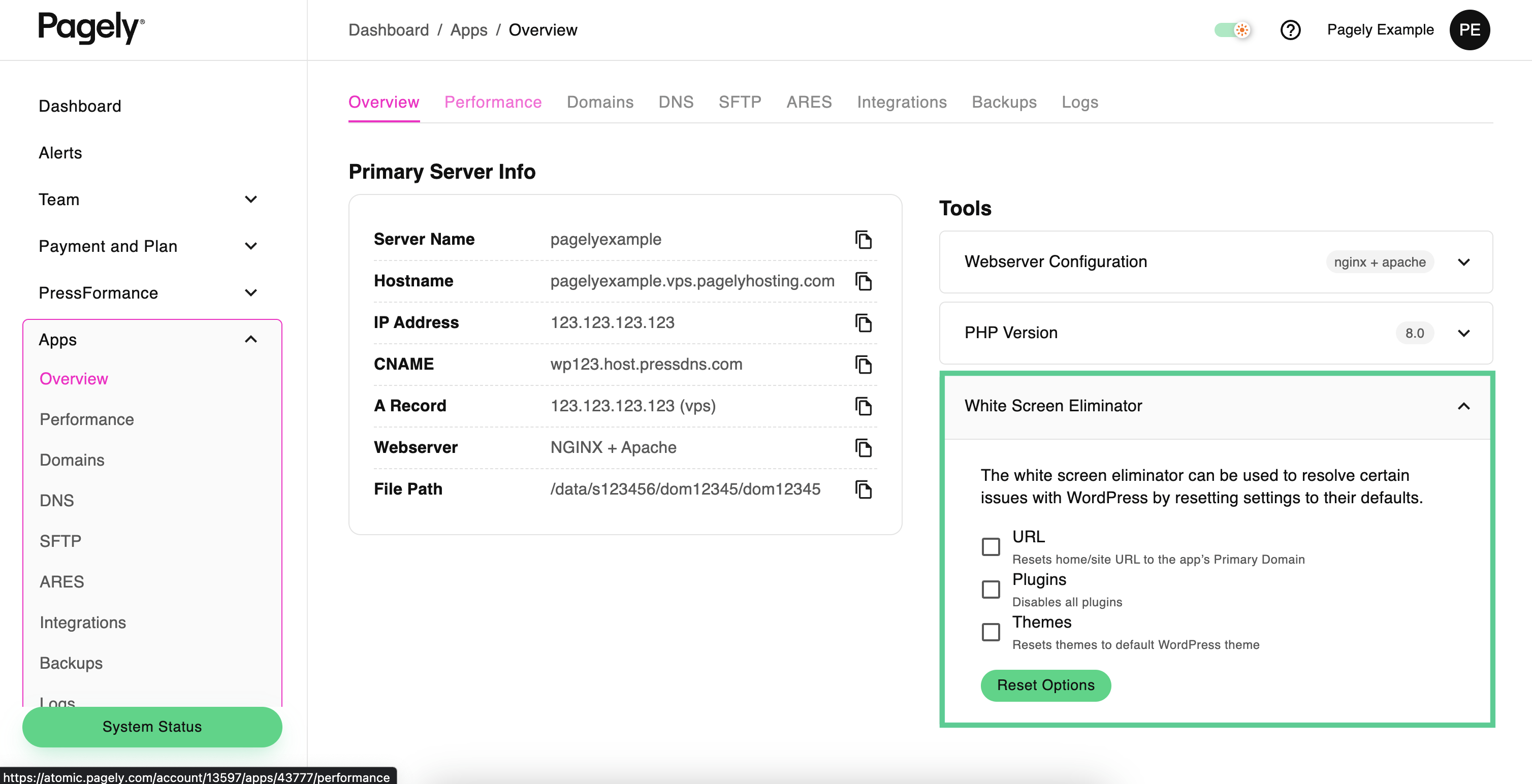
Pagely offers ticket and chat support, typically resolving setup within one day. While this is efficient, it doesn’t match the immediacy of Hivelocity’s instant server deployment. Pagely’s environment is tailored specifically for WordPress sites, making it more specialized but potentially limiting for users needing broader hosting solutions. For such users, Hivelocity’s offering of multiple control panels and operating systems makes it a more versatile choice, appealing to both beginners and experienced developers managing diverse website types.
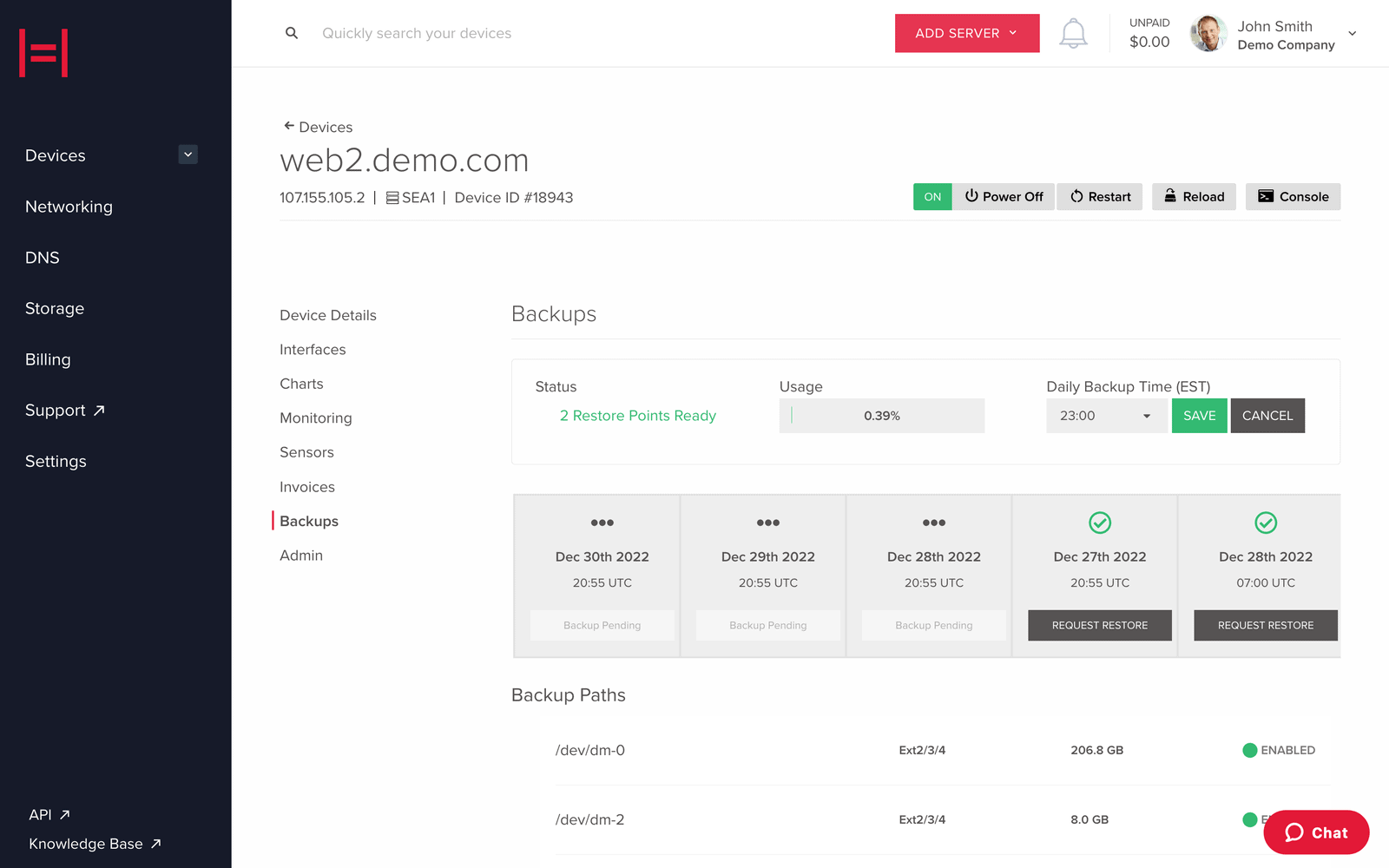
When it comes to migration tools, Hivelocity offers managed services for Linux, cPanel, and Windows, which can significantly streamline the migration process. These services often involve a higher level of support, potentially including automated migration tools, ensuring that entire websites can be moved easily and efficiently. Pagely’s managed WordPress environment simplifies the migration process for WordPress sites, often involving automated tools, but it might not provide the same level of assistance for non-WordPress sites. Both providers offer robust migration tools, but Hivelocity’s broader range may offer more flexibility for diverse site types.
Evaluating the quality and accessibility of their help center resources shows that Hivelocity has a comprehensive and regularly updated knowledge base covering a wide range of topics, supported by 24/7 customer service through chat, phone, and tickets. Pagely’s knowledge base is similarly extensive, focusing on WordPress-specific topics, and includes valuable articles, guides, and troubleshooting tips. The accessibility and depth of support materials from both providers ensure users can confidently manage and troubleshoot their websites.
User management
accessibility.
Score Components:
- Role customization (40%): Flexibility in creating and defining user roles and
permissions. - Ease of management (30%): User interface and tools for managing users.
- Access control (20%): Effectiveness of access control measures for different user
levels. - Scalability (10%): Ability to manage a growing number of users efficiently.
 6.9
6.9
 8.4
8.4
🏆 Winner Pagely: Offers extensive user management features with detailed roles and permissions.
Pagely provides a detailed framework for user management and permissions, featuring seven distinct roles: Account Owner, Super-Admin, Sub-Admin, Tech, Billing, App-Only, and App-Only-Minimal. Each role has specific permissions, ensuring a clear separation of duties. This allows administrators to assign roles based on the needs of the organization efficiently. On the other hand, there is no available information about Hivelocity’s user management capabilities to draw a direct comparison.
Pagely’s user interface for managing users is intuitively designed to simplify the process of role assignment and permissions management. The platform provides various tools that enable administrators to create and manage users quickly. Additionally, it’s structured to offer easy configuration and customization of user roles. The detailed permissions set for each role ensures that administrators can fine-tune access levels according to their requirements efficiently.
Access control measures within Pagely are effective, notably through its implementation of role-based permissions and 2-factor authentication capabilities. The clear distinction between different user roles, ranging from high-level access to minimal privileges, enhances security. The system is capable of scaling efficiently with a growing organization, allowing for the seamless addition of new users and quick modifications to access controls as needed.
Pagely User Roles Table:
| Role | Description | Access Highlights |
|---|---|---|
| Account Owner | Full management of account and users. | Create Admin users, manage billing/tech users, force 2-factor authentication, manage sites, access backups, manage aliases, SSH/SFTP into VPS sites. |
| Super-Admin | Extensive site management and user control. | Manage account and users, oversee 2-factor authentication, access backups, manage aliases, configure SSH/SFTP keys, SSH into VPS servers. |
| Sub-Admin | Focused on site and user management. | Oversee site-level users, configure 2-factor authentication, manage sites, access backups, manage aliases, configure SSH/SFTP keys, SSH into servers. |
| Tech | Technical user with focus on security. | Manage 2-factor authentication, oversee sites, access backups, manage aliases, configure SSH/SFTP keys, SSH into servers. |
| Billing | Handles financial aspects. | Manage 2-factor authentication, access backups, manage aliases, configure own SSH/SFTP keys, enter sites via SFTP. |
| App-Only | Limited to application-level operations. | Oversee 2-factor authentication, access backups, manage aliases, configure own SSH/SFTP keys, enter sites via SFTP. |
| App-Only-Minimal | Minimal restrictions for basic operations. | Oversee 2-factor authentication, access backups, manage aliases, configure own SSH/SFTP keys, enter sites via SFTP. |
Customer support
hosting provider.
Score Components:
- Support communication channels (30%): Measures the variety of customer support types
provided (live chat, chatbot, email, phone, etc.) - Availability (20%): Assesses the availability hours for each channel, including 24/7
support options. - Technical support quality (30%): Assesses whether the provider offers comprehensive
technical support, including hardware upgrades (e.g., HDD to SSD), software installations, and web
server configuration changes. - Enterprise support (20%): Checks if there are dedicated or priority support services
for enterprise-level customers.
 9.5
9.5
 8.9
8.9
🏆 Winner Hivelocity: Excellent uptime and a wide range of data center locations make it a strong hosting choice.
 |
 |
|
|---|---|---|
Phone support |
*Phone support at Pagely is available to customers on select plans. |
|
Live chat support |
||
Chatbot |
||
Email/ticket support |
||
Enterprise support (dedicated agent, priority support) |

Hivelocity and Pagely both offer extensive customer support options, but Hivelocity shines with its 24/7/365 availability across live chat, phone, and ticketing systems. It also offers an extensive array of self-help resources such as walk-through articles and videos. On the other hand, Pagely impresses with its tierless support system where every team member is a capable engineer, and a significant 97% customer satisfaction rating. Pagely provides ticketing support 24/7 and additional live chat and Slack channel support during business hours.
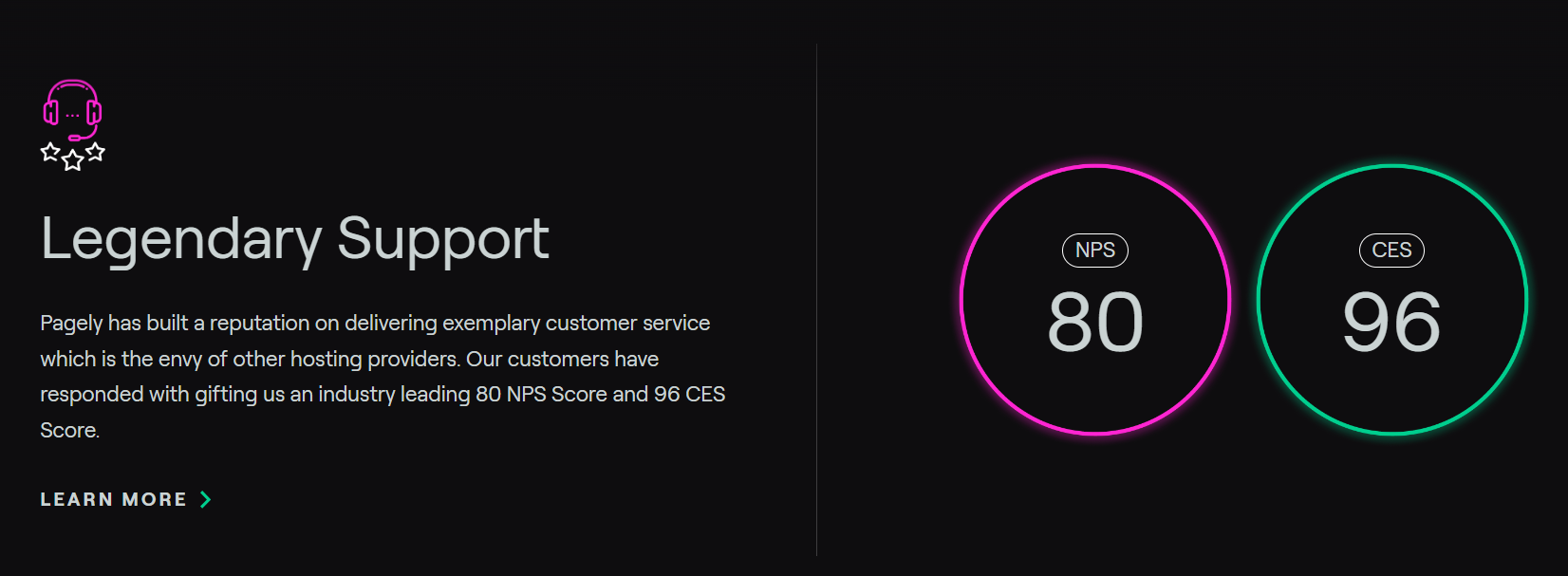
In terms of customer interaction, Hivelocity provides more traditional and widely accessible support channels such as phone support, which is available 24/7 for all customers, while Pagely limits phone support to select plans. Both providers have commendable response times and high satisfaction ratings, but Hivelocity’s consistently available support across all channels gives it an edge for users needing instant help at any time.
Hivelocity vs Pagely: User feedback
Hivelocity consistently receives high praise for its exceptional customer support and reliability from long-term users. Clients appreciate the responsiveness of the support team, quick resolution times for issues, and the high level of technical expertise available. Many reviews mention the stable and uninterrupted server performance, contributing to a seamless user experience. While a few users noted minor areas for improvement, such as pricing or specific functionalities, the overall sentiment is overwhelmingly positive, with Hivelocity being recommended for its robust service and support.
Users highly appreciate this hosting provider for its exceptional reliability and top-notch customer support, often comparing it to having an on-call DevOps team. The platform is praised for its speed, security, and a suite of features designed specifically for WordPress hosting. Many find the management tools intuitive and effective, though some express a desire for improvements in specific areas like the Atomic dashboard and multi-user access. The main criticism revolves around the high cost, which is noted as a barrier for smaller operations, but many users agree the premium price is justified by the service’s quality and reliability.
Hivelocity vs Pagely: FAQ
Which platform is better suited for hosting WordPress websites?
Pagely specializes in managed WordPress hosting with features like automatic upgrades, staging environments, and advanced security, making it a top choice for WordPress hosting. On the other hand, Hivelocity offers WordPress hosting as well but doesn’t emphasize it as heavily. Therefore, Pagely is better suited for hosting WordPress websites.
What are the major differences in pricing and value between hivelocity and pagely?
Hivelocity offers a wide array of hosting plans at more competitive prices, which include managed dedicated servers and various customization options. In contrast, Pagely focuses on premium, high-end managed WordPress hosting with costs starting at $199 per month and going up to $3600 for High Availability configurations. Hivelocity generally provides better value for a wider range of hosting needs, while Pagely offers specialized, high-value features for WordPress.
Which platform offers better customer support?
Hivelocity excels with 24/7/365 customer support available via live chat, phone, and ticketing systems, along with extensive self-help resources. Pagely also offers high-quality support with a tierless system of engineers available through ticketing 24/7 and live chat during business hours. However, Pagely’s phone support is limited to select plans, giving Hivelocity the edge for comprehensive customer support access.
Which hosting service offers more scalability options for growing websites?
Pagely offers more flexibility and advanced scalability options, including load-balanced nodes and managed DevOps support, making it more suitable for automatic scaling. Hivelocity provides scalable solutions like private clouds and server clusters but typically requires manual plan upgrades. Thus, Pagely is better equipped for seamless scalability.
How do the providers handle email hosting and what features are included?
Neither Hivelocity nor Pagely offers built-in email hosting. Pagely suggests the use of third-party services like Google Workspace for email management, facilitated by its advanced integration and support for developer tools. Hivelocity lacks inherent email hosting capabilities, redirecting users to external email service providers.
The making of this blog
We followed a clear, step-by-step process to write and research this article.










